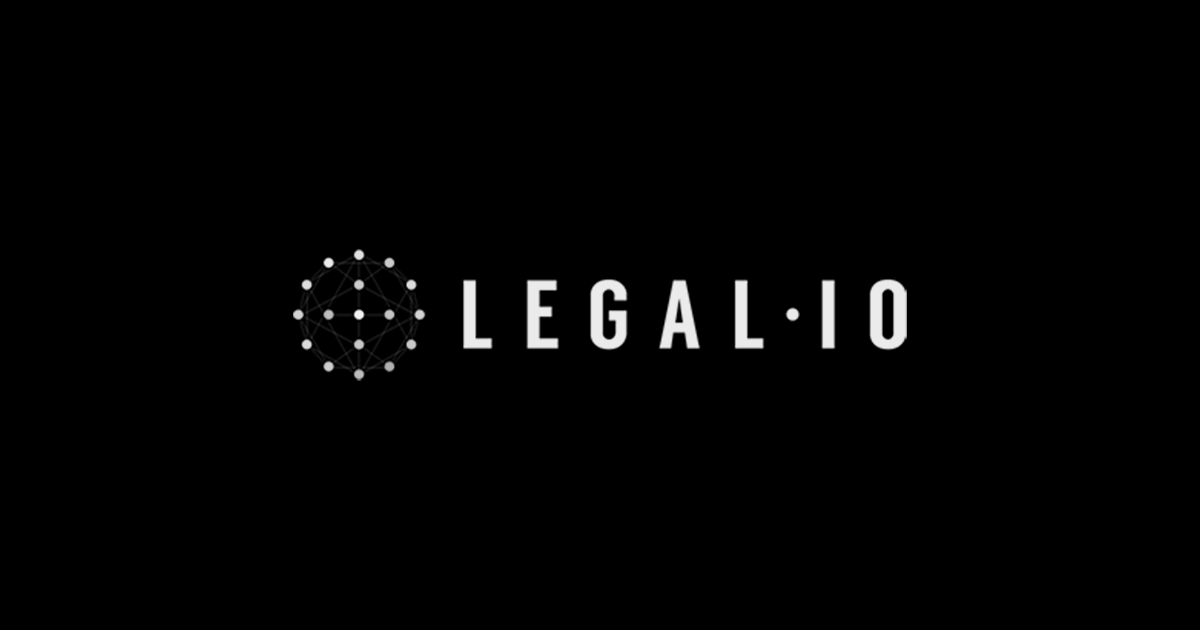
Legal.io: Complete Buyer's Guide
AI-powered legal talent marketplace and RFP automation
Legal.io is a specialized AI-powered platform that combines an established legal talent marketplace with recently launched RFP automation tools specifically designed for legal staffing procurement. Founded at Stanford University in 2011, the company has built a network of 75,000 legal professionals while serving 60% of FAANG companies and hundreds of in-house legal departments[140][129].
Market Position & Maturity
Market Standing
Legal.io demonstrates strong market maturity through its 14-year operational history since founding at Stanford University in 2011, establishing substantial credibility in legal talent placement before expanding into AI-powered RFP automation[129][130].
Company Maturity
The platform's enterprise client penetration serving 60% of FAANG companies and hundreds of in-house legal departments indicates successful market positioning and competitive differentiation[140].
Growth Trajectory
Growth trajectory indicators include expansion from talent placement into AI automation, suggesting strategic evolution toward comprehensive legal procurement solutions[128].
Industry Recognition
Market validation appears strongest in talent placement services, with documented customer success across Fortune 500 technology companies and high-growth startups spanning 12 industry sectors[129][137][138].
Strategic Partnerships
Strategic partnerships include integration capabilities with major legal technology platforms including Serengeti, SimpleLegal, Brightflag, and Magnit, positioning Legal.io within existing legal technology ecosystems rather than as standalone solution[129].
Longevity Assessment
Longevity assessment reveals strong foundation through proven talent services with extensive customer validation, though AI capabilities require separate evaluation due to recent launch timing[128][134].
Proof of Capabilities
Customer Evidence
Legal.io demonstrates proven capabilities through extensive customer validation for talent placement services, with enterprise clients including OpenAI, major technology companies, and hundreds of in-house legal departments[134][140].
Quantified Outcomes
Quantified performance outcomes include candidate presentation within 4 business days of scope confirmation and interview coordination within one week for talent services[137].
Case Study Analysis
Tom Stephenson, Former Head of Legal Operations, characterizes platform effectiveness as 'game-changing,' noting 'significant boost to operational efficiency' across flexible contract, temp-to-perm, and permanent roles[134].
Market Validation
Market validation spans 12 industry sectors with successful implementations across Fortune 500 technology companies and high-growth startups[129][137][138].
Competitive Wins
Competitive wins include ongoing partnership expansion, as demonstrated through OpenAI's continued engagement from initial placement to additional professional onboarding[138].
Reference Customers
Enterprise customers include OpenAI and major technology companies, demonstrating substantial market reach and competitive positioning[134][140].
AI Technology
Legal.io's AI RFP Tool leverages the platform's 14-year data accumulation and 75,000-member professional network to generate customized legal staffing RFPs in under one minute[128][140].
Architecture
Technical architecture centers on integration with existing legal technology stacks, including compatibility with legal billing systems such as Serengeti, SimpleLegal, and Brightflag, plus vendor management systems including Magnit[129].
Primary Competitors
Key competitors include Arphie for enterprise RFP automation with SOC 2 compliance and proven onboarding timelines under one week[45][71], AutogenAI for complex multi-million-dollar proposals requiring custom AI engines[1], and Loopio for comprehensive proposal management with established AI features[10].
Competitive Advantages
Legal.io's primary competitive advantage lies in combining AI RFP generation with established talent network access, creating integrated workflow from procurement to placement unavailable from pure AI solutions[128][129].
Market Positioning
Market positioning targets organizations requiring integrated talent placement and RFP generation capabilities, prioritizing legal industry-specific market intelligence over pure AI innovation[128][129][140].
Win/Loss Scenarios
Win scenarios favor Legal.io when organizations value comprehensive legal staffing solutions, require real-time market intelligence, and prioritize established vendor relationships over cutting-edge AI features[128][140]. Loss scenarios occur when organizations prioritize proven AI capabilities, require broad proposal writing functionality, or demand transparent pricing models for budget planning[45][71][1][10].
Key Features

Pros & Cons
Use Cases
Integrations
Featured In Articles
Comprehensive analysis of AI-Powered RFP & Proposal Writing for Legal/Law Firm AI Tools for Legal/Law Firm AI Tools professionals. Expert evaluation of features, pricing, and implementation.
How We Researched This Guide
About This Guide: This comprehensive analysis is based on extensive competitive intelligence and real-world implementation data from leading AI vendors. StayModern updates this guide quarterly to reflect market developments and vendor performance changes.
141+ verified sources per analysis including official documentation, customer reviews, analyst reports, and industry publications.
- • Vendor documentation & whitepapers
- • Customer testimonials & case studies
- • Third-party analyst assessments
- • Industry benchmarking reports
Standardized assessment framework across 8 key dimensions for objective comparison.
- • Technology capabilities & architecture
- • Market position & customer evidence
- • Implementation experience & support
- • Pricing value & competitive position
Research is refreshed every 90 days to capture market changes and new vendor capabilities.
- • New product releases & features
- • Market positioning changes
- • Customer feedback integration
- • Competitive landscape shifts
Every claim is source-linked with direct citations to original materials for verification.
- • Clickable citation links
- • Original source attribution
- • Date stamps for currency
- • Quality score validation
Analysis follows systematic research protocols with consistent evaluation frameworks.
- • Standardized assessment criteria
- • Multi-source verification process
- • Consistent evaluation methodology
- • Quality assurance protocols
Buyer-focused analysis with transparent methodology and factual accuracy commitment.
- • Objective comparative analysis
- • Transparent research methodology
- • Factual accuracy commitment
- • Continuous quality improvement
Quality Commitment: If you find any inaccuracies in our analysis on this page, please contact us at research@staymodern.ai. We're committed to maintaining the highest standards of research integrity and will investigate and correct any issues promptly.